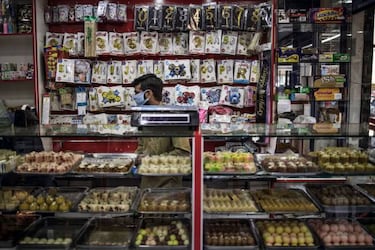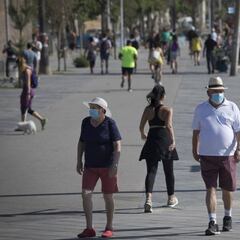Eid al-Fitr 2020 dates: When is the end of Ramadan?
The Muslim festival Eid al-Fitr marks the end of the month-long Ramadan period of fasting, but this year's festivities will be affected by the coronavirus.

What is Eid al-Fitr?
Eid al-Fitr, which means the “Festival of Breaking the Fast”, is a celebration held by Muslims to mark the end of Ramadan. Lasting for a month, Ramadan is a period in which those who practice Islam fast from dawn to sunset.
As part of festivities which go on for up to three days, Eid al-Fitr sees Muslims bathe and put on new clothes, and take part in communal post-dawn prayers.
People also tend to eat traditional desserts and sweets, and gifts or money are often given to children.
The most popular way that people greet each other during the festival is by saying "Eid Mubarak" (which translates as "Blessed Eid") or "Eid sa'id" ("Happy Eid").
When is Eid al-Fitr 2020?
Eid al-Fitr starts when the crescent moon is officially sighted, and varies from country to country. Depending on when the crescent moon is seen, this year's Eid gets going on either the evening of Saturday 23 May or Sunday 24 May.

Eid al-Fitr amid coronavirus pandemic
The Eid al-Fitr celebrations are usually a time when people pack the streets and come together with relatives and friends in large social gatherings, but because of the Covid-19 pandemic, countries across the Muslim world have taken steps to curb communal prayers and celebrations this year.
Related stories
For example, people in Saudi Arabia have been told by the nation’s Grand Mufti to pray in their houses rather than at mosques, while authorities in Egypt have brought forward the start of the country’s coronavirus curfew by four hours, to 17:00, to ensure people remain at home.
"We will not see our siblings, loved ones and friends," one Egyptian told the news agency Reuters.
